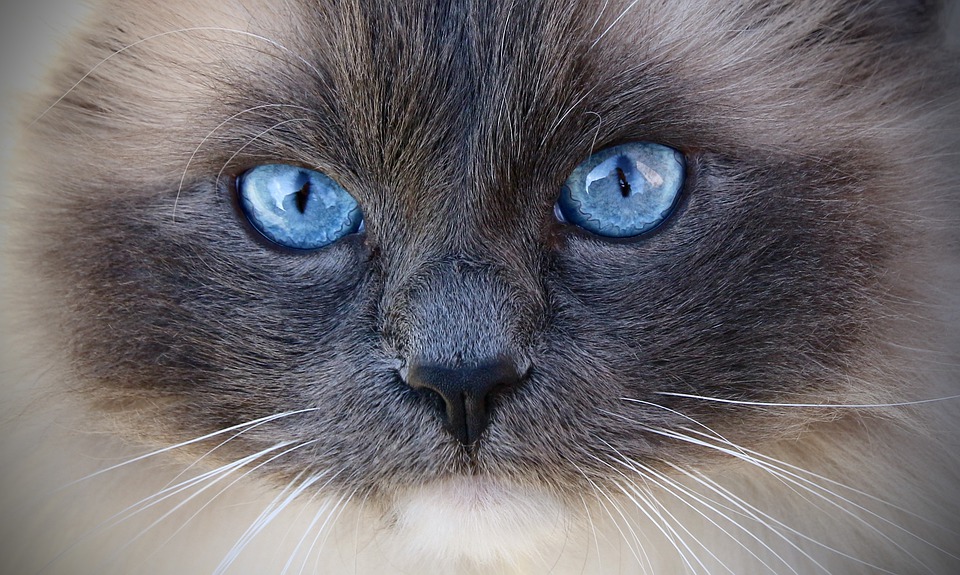Cats are fascinating creatures with unique behaviors that often leave us wondering about their needs and preferences. One behavior that is commonly misunderstood is whisker stress. Whisker stress refers to the discomfort or irritation cats experience when their sensitive whiskers are constantly being stimulated. In this article, we will explore the causes of whisker stress in cats and provide practical solutions to alleviate this condition.
Whiskers, also known as vibrissae, are long, thick hairs that grow on a cat’s face, particularly around their muzzle. These whiskers are highly sensitive and serve as a vital sensory tool for cats. They help cats navigate their surroundings, detect movement, and determine whether they can fit through narrow spaces. Whiskers are connected to nerve endings, which make them extremely sensitive to touch and pressure.
Understanding whisker stress is important because it can significantly impact a cat’s well-being. When a cat’s whiskers are constantly being stimulated, it can cause discomfort and stress. This can lead to a range of behavioral issues and physical discomfort for the cat.
There are several common causes of whisker stress in cats. One of the most frequent causes is the use of narrow food and water dishes. When a cat’s whiskers are constantly brushing against the sides of a narrow dish, it can cause discomfort and lead to avoidance of the dish. Cats may start pawing at their food or water, or even refuse to eat or drink altogether.
Overstimulation during play can also contribute to whisker stress. Cats enjoy interactive play, but if the play involves constant contact with their whiskers, it can become overwhelming and stressful for them. It’s important to provide playtime that doesn’t excessively stimulate their whiskers.
Tight collars or harnesses can also cause whisker stress. If a collar or harness is too tight, it can put pressure on the cat’s whiskers, leading to discomfort and irritation. It’s crucial to ensure the proper fit of collars and harnesses to prevent whisker stress.
Confined spaces can also contribute to whisker stress in cats. If a cat is constantly in an environment where they have to squeeze through narrow spaces, their whiskers may be constantly stimulated, leading to stress and irritation. Providing open and spacious environments can help alleviate this issue.
Uncomfortable sleeping areas can also cause whisker stress. If a cat’s sleeping area is too small or uncomfortable, their whiskers may be constantly brushing against the sides, causing irritation and stress. Offering comfortable sleeping areas with enough space for the cat’s whiskers to rest comfortably can help prevent whisker stress.
Recognizing the signs and symptoms of whisker stress is important for early intervention. Some common signs include whisker fatigue, where a cat becomes tired or irritated from constant whisker stimulation. Cats may also avoid food or water dishes, show irritability or aggression, paw at their face, or hesitate to enter small spaces.
To alleviate whisker stress, there are several solutions that cat owners can implement. Using wide and shallow food and water dishes can prevent constant whisker stimulation. Providing adequate playtime and mental stimulation in a way that doesn’t excessively stimulate their whiskers is also essential. Ensuring the proper fitting of collars or harnesses is crucial to prevent whisker stress.
Creating open and spacious environments for cats to explore and relax in can help alleviate whisker stress. Offering comfortable sleeping areas with enough space for their whiskers to rest comfortably is also important.
In conclusion, understanding whisker stress in cats is crucial for providing a comfortable and stress-free environment for our feline companions. By recognizing the causes and signs of whisker stress, as well as implementing the suggested solutions, cat owners can ensure their cats’ well-being and overall happiness. If you suspect your cat may be experiencing whisker stress, it is always recommended to consult with a veterinarian for further guidance.








